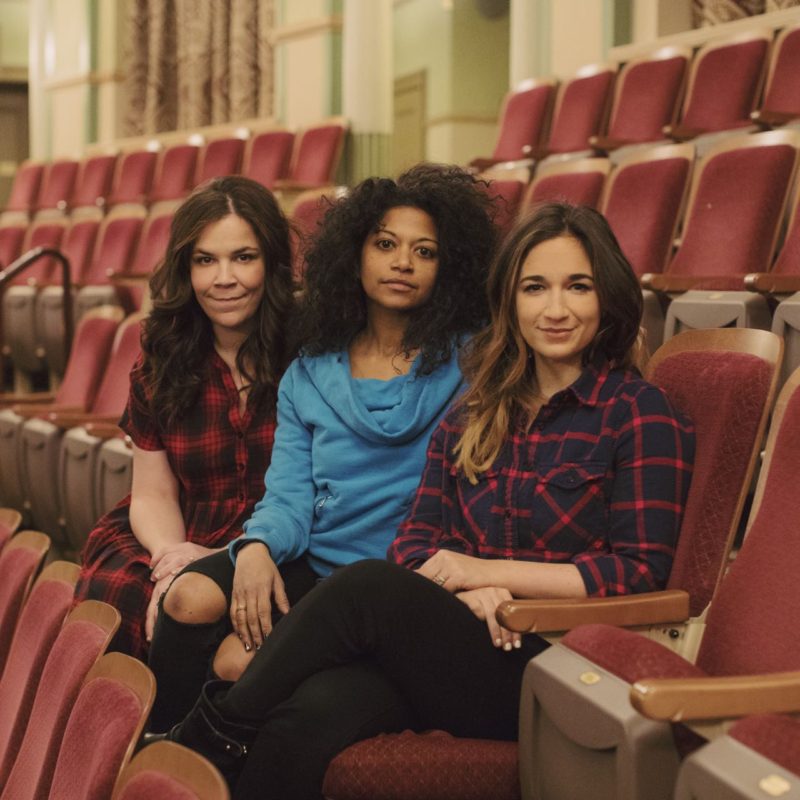Women of “Significant Other”
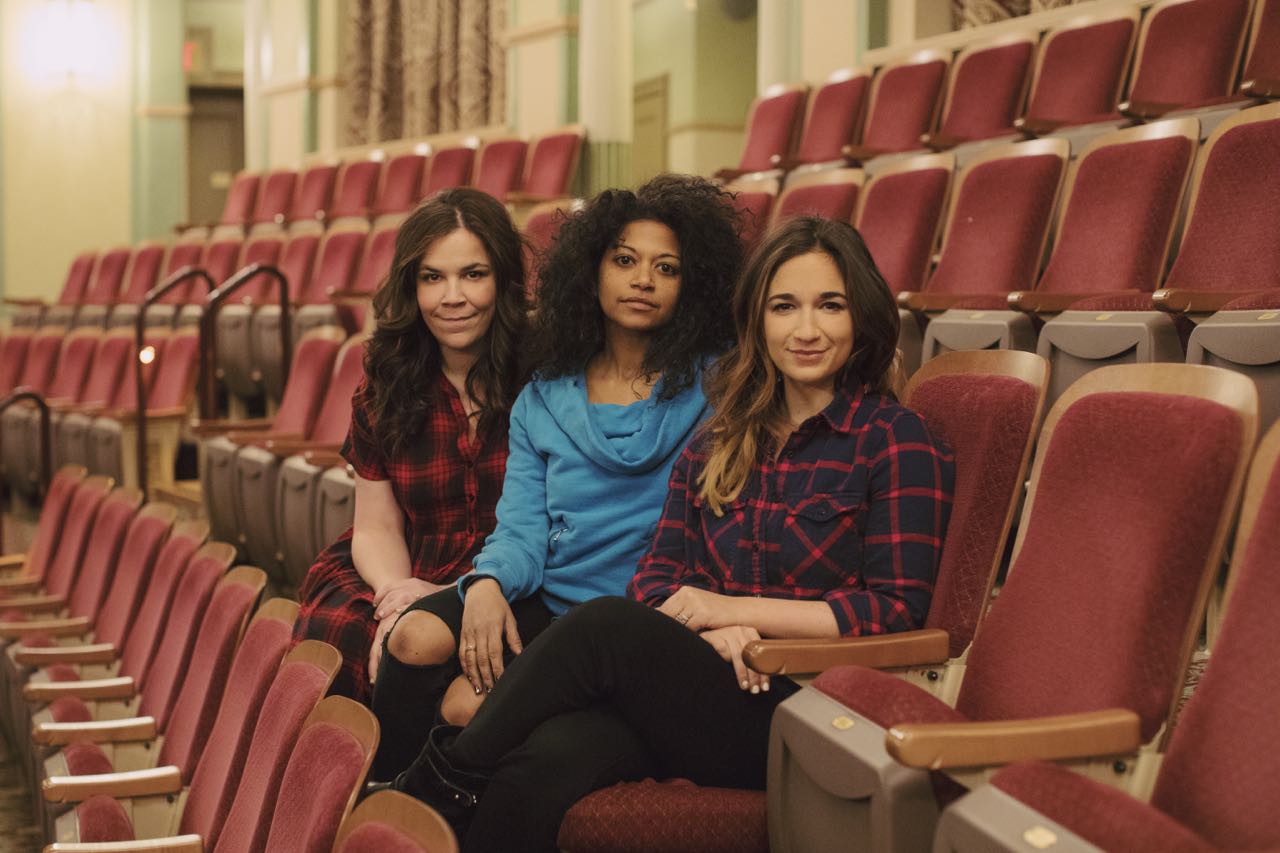
Written by Victoria Myers
Photography by Jacqueline Harriet
March 14th, 2017
Significant Other, the new play by Joshua Harmon and directed by Trip Cullman, which recently opened on Broadway after a successful Off-Broadway run at the Roundabout, has been prompting a lot of Facebook statuses about “ugly crying” and “having all the feels.” In other words, it has struck a chord with millennial audiences. The plays centers on Jordan and the changing and complex nature of his relationship with his three best friends as they all get married and he remains alone. The three friends are dynamically portrayed by Sas Goldberg, Rebecca Naomi Jones, and Lindsay Mendez. We recently sat down with Sas, Rebecca, and Lindsay to discuss the changing nature of friendships, being young in New York City, comedic influences and more.
What do you each find most thematically resonant for you, personally, about Significant Other?
Lindsay: I find that the show hits hard on that friendships are true relationships, and you’re in love with your friends in a way that’s very special and unique. When their lives change, it can affect you pretty deeply. That’s something that runs through my life a ton. I love my friends so much, and I think I’ve hurt a lot of them, and we’ve all been through a lot together. That part of this play really speaks to me, and I feel like I understand it well.
Sas: I think, for me, it’s finding room and finding ways to find time for your childhood friendships in your adulthood life, which is something I think definitely takes place in the play, particularly as act two starts to take shape. People start to couple up, and how do you make time for people that are important to you when now they have jobs, and they have vacations planned, and life gets in the way? How do you make priorities for each other? That’s the biggest thing that I’m handling right now. I wouldn’t say it’s a struggle, but I’m dealing with it.
Rebecca: I think for me it’s kind of a random thing, which is that feeling that Jordan goes through a bit—it’s not 100% his journey—but the moment of waking up one day, and suddenly everybody’s got their lives all squared away. I’ve been feeling that a lot. Recently, in the last couple of years, I think a little bit like, “Oh, I’ve been so career-focused.” I have been paying more attention to work stuff, which is great. I think in New York City that’s so encouraged and such a part of our lives, and it keeps you young and all of that. But then, in the last couple of years, I feel like I woke up and was like, “Oh, shit. I’m an adult, and I don’t know that I have my life together. Am I getting married? Am I going to have kids? Do I want that? And if I want that, I should be sort of further along in plans…” There’s a lot of that that I relate to.
Sas: The barometer of like where you should be and when?
Rebecca: Totally. And most of the time I do a good job of avoiding that worry because I’m happy and healthy. I’m working and cared for. I have friends and a boyfriend and people who take care of me, and all that stuff. But it is sometimes like, “Oh, wait. Have I been prioritizing the wrong things?” or, “What even do I really want? Do I want those things?” So it’s like sort of being hit with those questions.
Lindsay: And I was going say, you guys were born and raised here. For me, what I know of is that people move to New York, not to pursue a family, they move here to pursue a career. And that is what this city’s about, and it takes so much time and effort. So I don’t expect people here to settle down quickly and have their plan. Because that’s just not how our world operates. But my friends that are outside of our entertainment world, and are doing that and following that trajectory, that’s what makes me be like, “Oh, wait.” Because none of my friends that are actors are having kids in their early twenties. That’s not the reality, but for me, when I check in with…
Sas: People outside of this world?
Lindsay: Yeah, I know you go through that.
Sas: Yeah, totally. And I am from here, and most of my friends live here, but definitely they’re in a different place than me life-wise. That definitely gives me pangs of keeping up with the Joneses. I don’t want to be left behind. Everyone’s experienced it. Jordan’s experiencing it in a way that he feels like he is missing that romantic relationship, but I think we all feel it in different ways. People feel it towards their career. People feel it towards their family life. But I think everyone feels that way. And I think if we’re not, then we’re not being honest with ourselves.
Rebecca: That’s so true.
One of the things I noticed was this show seems to have a lot of resonance with people in their late twenties and early thirties, which are also people who were raised on certain TV shows that had a very specific way of depicting adult life in New York City, like Friends, Will and Grace, and Sex and the City. Do you feel like those pop culture things affected your ideas of what adult life in the city was and your ideas of how friendship played into that?
Sas: I do think we grew up with some sort of sense that as women we could have it all. That’s kind of how it felt. You could have a glamorous life and you can have the boyfriend and the family, and the whole thing. And that’s different from generations before us, where it just kind of felt like women had to pick one or the other. I bet we were one of the first groups of people that felt like you could have the whole thing.
Rebecca: I would agree with that. I don’t know that that necessarily affected my friendships. I do feel like they do go together because I feel like watching those shows did give me a sense of what kinds of activities people do with their friends in New York, and how people live in this world with their friends. I feel like growing up we did have these shows—especially with things like Sex in the City, which is so specific—that really drove home the thing of you can just sort of do whatever you want. And then I think in real life you sort of realize, “Oh, that’s a TV show.” And you can still do whatever you want, but it’s more complicated. But friendships-wise I don’t think that stuff really affected me.
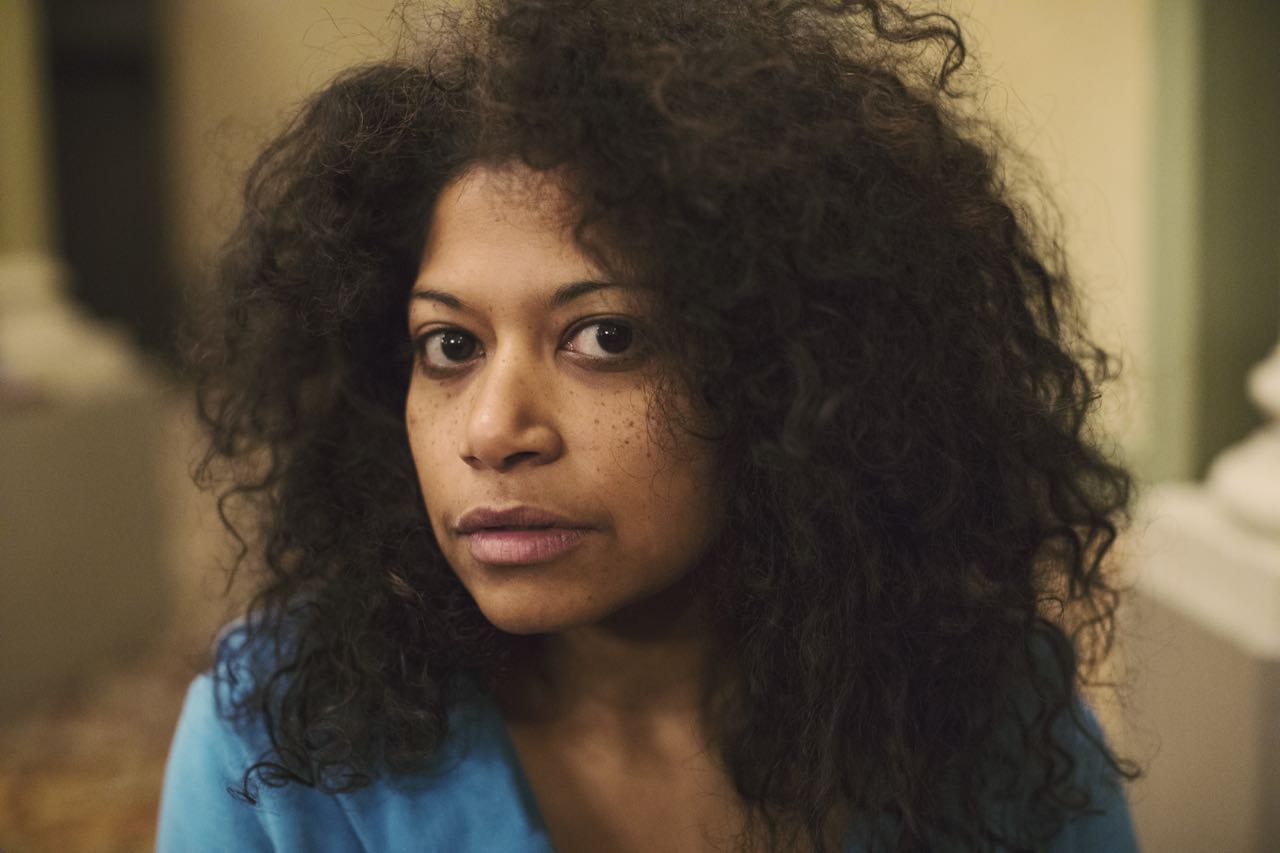
I want to talk more about some thematic stuff, but before we get to that, I wanted to talk a little bit about process. One of the things that I’ve been asking actresses a lot lately is when they’re doing shows that are contemporary, if you find any particular challenges with playing characters who people might perceive as being like closer to you in reality, or who actually are closer to you in reality, than some other types of roles?
Sas: When I’m playing a role, I always like to imagine how this person exists outside of the confines of the play. So I talk a lot about like, “Oh, [my character] Kiki’s probably the person who does this,” and it helps me kind of make a full-fledged thing. I can’t control if someone sees the play and is like, “Oh, she must be just like that.” Are there parts of me that are Kiki? A hundred percent. Are there parts that are very different? A hundred percent, as well. But for me, especially when you’re playing someone contemporary, to think about how they fit into a contemporary world outside of what the playwright has given you. And Josh has given us such a great rubric to know how that person behaves in other scenarios.
Lindsay: You always bring a part of you to any role you play, or at least I do. It’s my version of who that person is. But I think the playwright or the book writer gives you the information they do, and then you fill in your own information. You ask yourself all the questions. Or one time I was like, “I really want to be pigeon-toed in a show,” so I was like, “This character is pigeon-toed.” And that was really a fun experience for me. I also think you can really spiral worrying about what other people think of you, like if you’re really acting or if you’re really that [in real life]. I just think that’s a big angry web of bats that I don’t like to think about.
Lindsay and Sas, you both did the play Off-Broadway. Have you found with this play, since there’s so much comedy in it, that you’ve found a lot through performance and having an audience there?
Sas: Yeah. We knew that there are great jokes, but if nobody’s laughing at them, they don’t feel great.
Lindsay: The play is so beautifully well written. It’s really sometimes too many funny lines, and I think we’re kind of riding when to pause and when to keep going. What I love about our company is I feel like no one’s in it for themselves. Everyone knows how to serve the moment that is the peak, and we all throw the ball together and make sure that peak is the big landing because that win is for our play. It feels really good to be in a show where everyone is serving the play and not themselves. It’s rare, and it’s really cool to be in an ensemble where everyone’s got this ball and they’re just throwing it. It’s really exciting.
Rebecca: That’s absolutely true. I think that’s why the comedy works so well. I mean it’s like a combination of Josh’s great writing, and then being a part of a team.
Sas: Josh writes layup jokes, where it’s kind of like you’re dribbling the ball down the court and then someone’s going make the three point shot. I know that’s like a sports thing—how about that reference, folks?—but particularly at the end of act one there’s a whole segment where everyone kind of passes the hot potato. And Josh is an incredible playwright in that he doesn’t write just one punch line, he writes like twelve in a row. And people are laughing, and you want to say as the actor, “Don’t. There’s a better one coming.” And that’s the genius of fucking Josh Harmon.
Rebecca: In terms of not knowing when stuff was funny until I got into an audience, since I was new, there were things that in the [rehearsal] room, I thought were just sad things or just facts, and then I found out that they were bits of humor, which was such a delight.
For each of you, who do you feel like has most influenced your sense of humor?
Rebecca: Lucille Ball.
Lindsay: Ditto.
Sas: Cheri Oteri.
Rebecca: Wow. Good choice.
Sas: Thank you. I remember seeing her when I was nine years old. I was watching SNL in a hotel room in Florida with my dad. He showed me SNL for the first time, and I saw that Spartan cheerleader skit and I was like, “Who is that woman and what is she doing with her face and body, and I want to know everything about her.” And I really went in a deep dive about Cheri Oteri. Obsessed with Cheri Oteri.
Rebecca: I also like random people, like Jeanine Garofalo. I really ate her up in Reality Bites.
Sas: Oh, Reality Bites, great soundtrack too.
Rebecca: Yes. I had it memorized.
Sas: Me too. “My Sharona” starts it. And the “Spin the Bottle.” I mean I really know the entire soundtrack.
[They actually did start to sing some of the soundtrack to Reality Bites]
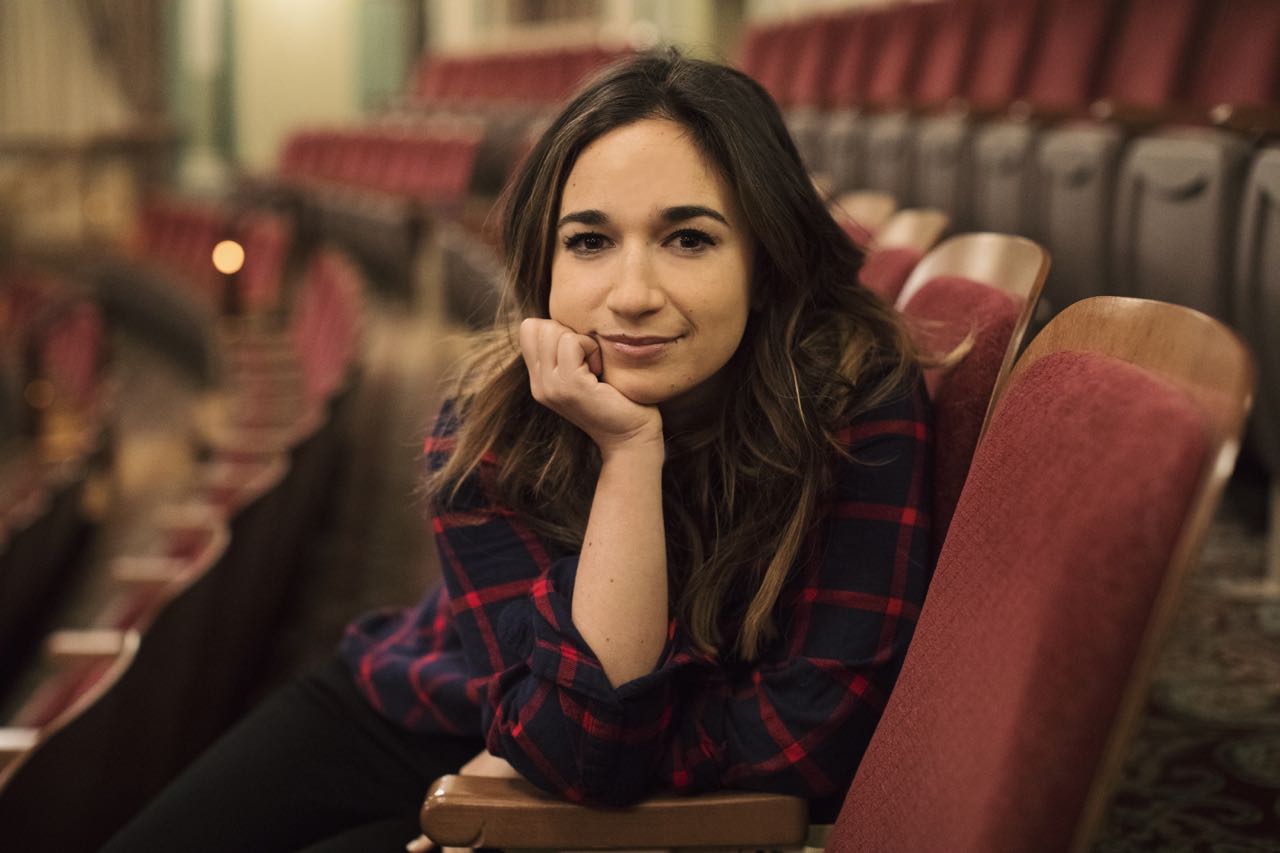
Let’s go back to the themes of the play, especially the theme of friendship and how those relationships change as you get into your late twenties. You all touched on this before, but I was wondering if you felt like you had to learn to navigate those changes in friendships?
Sas: I feel like I did. A lot of my friends don’t live here, so there are time differences and kids, and you have to make time and show up for people you care about. I’ve been really lucky that my friends who live far away have all flown in for the show, and I’ve gone to meet their babies. I think everyone shows up in the way that they can. But I think that’s a new thing to navigate when you’re not seeing each other every single day, or talking every single day on the phone.
Rebecca: I’ve gone through periods where I’ve disappointed myself in terms of not keeping up with friends. I went through a big one after college. I went to a tiny conservatory and I had gotten so close with those people, and then right after we all graduated, everyone in my class was sort of like a huddled mass trying to sort of navigate being here and trying to build careers, and I randomly went on this non-equity tour of Rent for nine and a half months and those people [on the tour] became my new temporary family. So I sort of lost touch with all those people [from school] who really meant so much to me, and still mean so much to me. I went through some tricky times with some of my close girlfriends because of it because they felt really abandoned by me. And I messed that up. To this day I kind of regret it. And, I will say that I still go into little bouts of it, where if I’m really, really busy with auditions or rehearsing, I get to this place where I feel like I can’t keep up with people, especially people outside of the business. Last year, I had to miss the wedding of my girlfriend from high school who I’m really close with because I had a random shoot day added to something. I will never feel okay about that. She’s one of my closest friends. It’s a weird thing, but I think the best thing we can do in those situations is try and at least reach out and say, “I’m really busy, but I’m thinking about you.” And I’m still kind of learning how to do that.
Sas: Yeah, there are days I feel like a shitty friend.
Lindsay: I think that just comes with just how unpredictable our lives are in this business. I’ve had friends get it and stay in my life, and friends who don’t and think I’m selfish and then we move on. That’s been hard to navigate. I also think that when you get into your late twenties, after you’ve done school and kind of had your growing pains, that’s when you start to really know who you are and what you really need in a friendship. And I think sometimes you can grow with your friends and sometimes you can’t. You just go different ways and you need different things. I mean, gosh, I got married, divorced, and married again, and the things I needed when I was in my early twenties were completely different than when I was thirty. I’ve changed so much as a human being and I feel like I’ve kind of had to let that go. I can hold myself accountable to be the best friend that I can be to people, and then, other than that, we have to just kind of keep growing together or apart and acknowledge that that’s okay, and that some friends aren’t meant to be forever. Some people are supposed to kind of weave in and out of your lives. But that’s part of life.
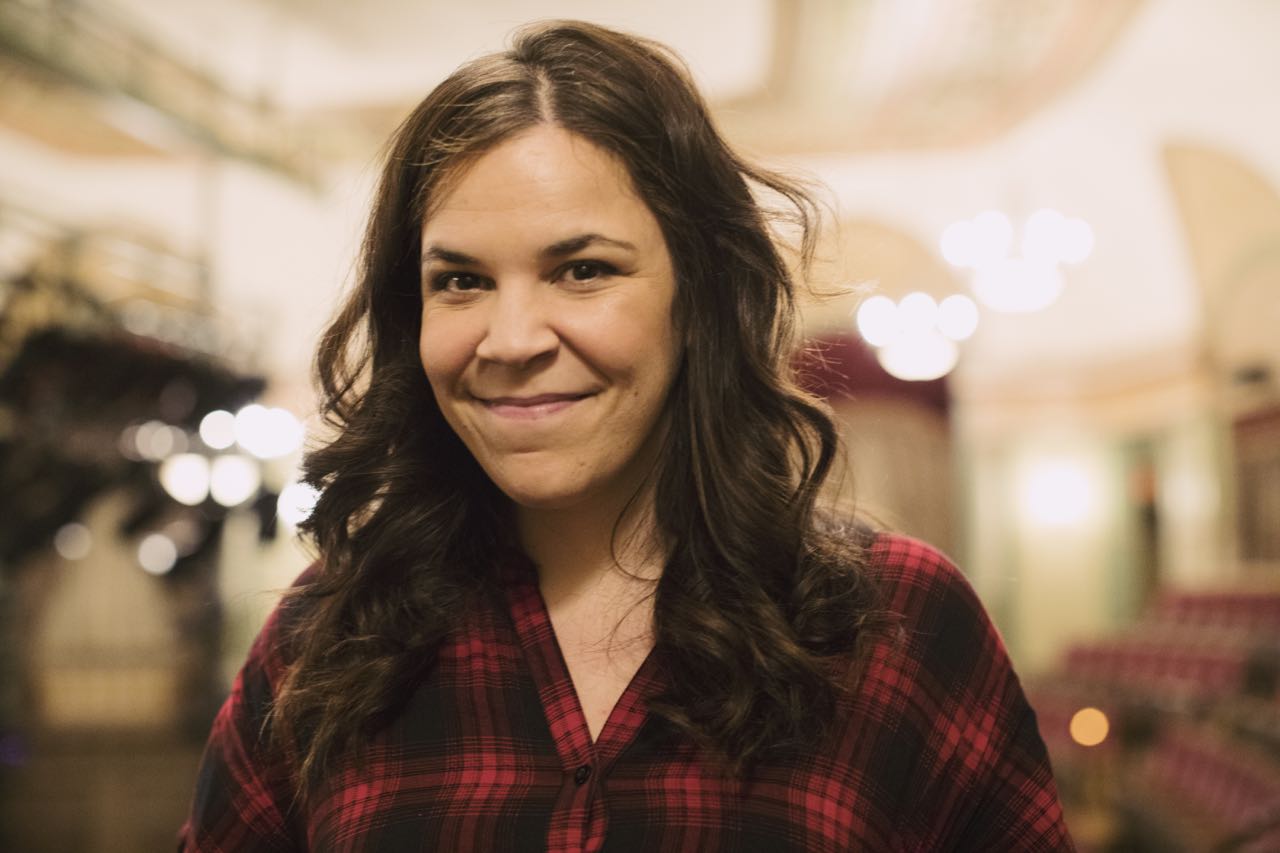
You’ve all touched on, and Rebecca was just talking about, the added weirdness of this business. What was your learning curve like for figuring out how to balance being a person in the industry with just being a person?
Sas: I’m still learning how to balance that.
Lindsay: Get back to us.
Sas: Ask me in 25 years. It’s always different. This is my [Broadway] debut, so I haven’t been in tons of plays and long runs or open-ended runs and things like that. So it’s totally different for me. My husband’s not in the industry at all, so I’m learning that every day, and I certainly have not mastered it.
Rebecca: I think it depends on the project too. You kind of learn what your personal math is with your daily life. Like with some shows you have a certain amount of time you have to warm up your voice and what you need to do physically, and with other shows you have to do less of that. It really varies what your little weird tricks are. I think in general, as you get older, you start to navigate how you can be a real human being aside from just like a robot who shows up and does a play. I think I’m getting better at that, like being a psycho and working really hard non-stop, in order to then have the moments when I can be like, “I’ve done everything I need to do, and now I can breathe and like, call a friend and ask how she’s doing.” That sort of thing. And get groceries.
Lindsay: It’s so real.
There are a couple of references in the play to people being on anti-depressants or seeing a therapist or just dealing with sadness. I was wondering if you all could talk a little bit about how the ideas of depression and sadness pop up up in the play?
Lindsay: I just think that loneliness can create real despair and depression. I also think that living in New York, you want everything to come fast and come now, like a Seamless life. And if you’re not getting what you need from life, you’re going to figure out how to be like, “What is the thing that I’m missing to be happy? How do I get it?” Like looking for that easy answer. And I think that’s what all these characters are going through: How do I get this? Everyone else is getting it around me, let me just call and get it. Let me just order it. I think a lot of characters are just coming up empty with, how do I make this plan? I think loneliness can masquerade as depression.
Rebecca: Totally.
Sas: I think what this play does is really reflect how people speak, in 2017, to their friends, and how they relate to each other. I’ve never seen it so accurately captured. I think part of that is people on antidepressants. But I think this is just showing a real snapshot of how friends, who speak honestly to each other, talk.
Rebecca: What’s really cool about that too is there are different levels. Because I think Jordan is talking about antidepressants and his therapist and sharing these deep, dark fears that he has. I think [my character] Vanessa’s version of it is more like a dark worldview. Like a very realistic look at the complicated darkness of what it means to be a person in the world, which is really complicated. And which I feel is really easy to believe in right now with our political climate. It’s dark. That’s a weird thing about being a person and an artist—it’s like, of course, we just want to be happy and not think about those dark, dark things like racism and sexism, but they’re there. I think Vanessa just calls it like she sees it. Trip and I had a good conversation when I was trying to figure her out and figure out how this character is able to be that person and still dance to Rihanna and hang out with this group of friends and joke and laugh and talk about sex and all that stuff. And I think that’s heartache, which is another big theme of this show that all of the characters understand. I think Vanessa already has a dark worldview and then probably recently got her heart broken, and then has been in this relationship she’s not thrilled by for a couple of years, and she feels a little stuck.
There’s that idea of wrestling with how you want things versus how things are or how you think they should be.
Lindsay: That New York mentality, like I was saying, of how we want everything now.
Sas: And there’s days you wake up and you feel like shit, and there’s days you wake up and you feel really good, and I don’t know if that ever goes away. I think a little bit of life is always that.
Rebecca: And I think too, New York, like you said Lindsay, is a place for ambitious people trying to make things happen. I think the other side of that is that while we’re trying to achieve at the highest level and at the fastest rate, sometimes we feel like we need other things to level up and give us what we need all at once. It’s like food delivery and Netflix and everything on the Internet, like the endless scroll. All of that stuff. It’s part of what we feel we need in order to keep running on the little hamster wheel.
Lindsay: But also, as a transplant, you dream about what you think it’s going to be like here and then you get here and you’re like, “Oh, this is my apartment? Oh, look at the rats. Oh, I’m afraid to go home late at night. Oh, I can’t afford my rent or to go out today.” I just think there’s a stark reality of actually getting here and pursuing your dreams, after you’ve dreamed about coming here for so long and doing it. So then you have to take the little bites as they come along. These characters have been here for six years already, for those of us who are transplants it’s like we’ve all done the little things, and now we’re like, “When’s the big thing?” Which is, for all of them, a partner. When is that thing?
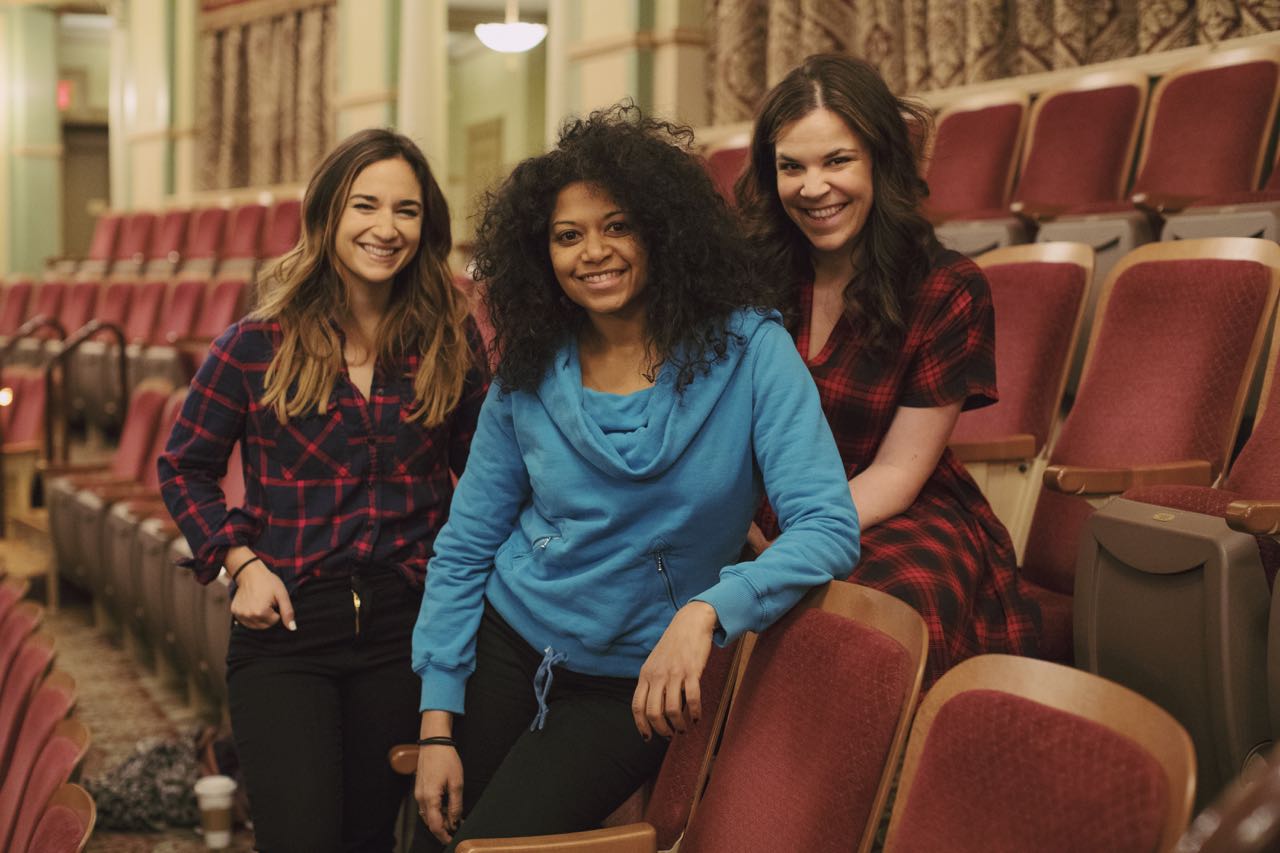
For each of you is there something thematically in the show that you wish people would talk about more?
Sas: I really do feel like the audiences are getting it. The best part is coming outside after a show or bumping into someone in the middle of Times Square or somebody tweeting that they’ve really felt represented, which is so nice. And such a refreshing thing, because I can’t think of many plays that I’ve seen on Broadway with a real, honest look at millennial life.
Lindsay: Yeah. I think it’s been really awesome.
Rebecca: It’s nice to see people are getting the friendship aspect of it too, which is a huge part.

